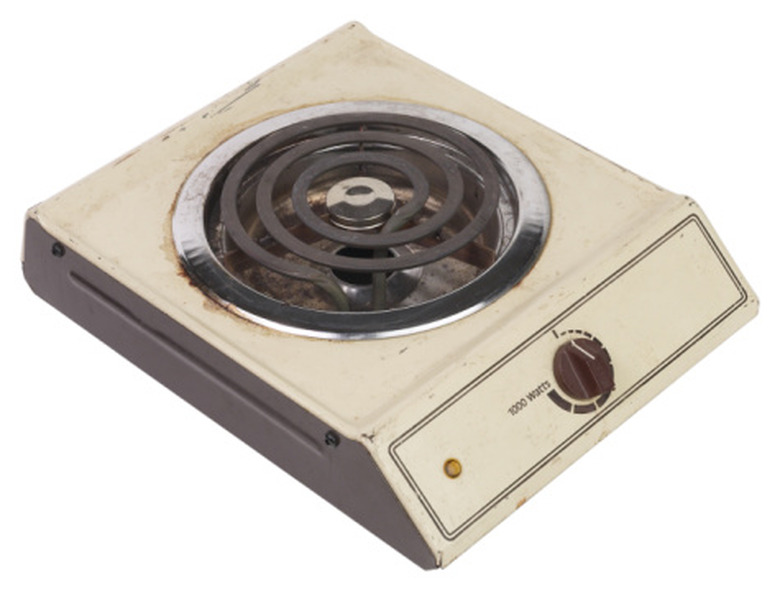How To Calculate BTU For Heat
The British thermal unit (Btu) is the heat needed to raise the temperature of a pound of water by a Fahrenheit degree. Other substances, however, absorb heat at different rates, with each having their own specific heat capacity. You can use Btus to calculate their heat requirements as well, but you must take into account their heat capacities and masses.
Step 1
Subtract the substance's current temperature from the temperature you want it to reach. If, for instance, the substance is currently at 22 degrees Celsius, and you want to heat it to 31 degrees Celsius: 31 – 22 = 9 degrees.
Step 2
Multiply this temperature rise by the substance's specific heat capacity. For a list of specific heat capacities, see the first link in "Resources." If, for instance, you are heating copper, which has a heat capacity of 0.386: 9 x 0.386 = 3.474.
Step 3
Multiply the answer by the substance's weight, measured in grams. If it weighs, for instance, 1,500 grams: 3.474 x 1,500 = 5,211. This is the heat requirement, measured in joules.
Step 4
Divide this answer by 1,055, the number of joules in a Btu: 5,211 ÷ 1,055 = 4.94, or approximately 5. The substance needs 5 Btus for you to heat it to 31 degrees.
Cite This Article
MLA
Menezes, Ryan. "How To Calculate BTU For Heat" sciencing.com, https://www.sciencing.com/how-8174875-calculate-btu-heat/. 7 August 2017.
APA
Menezes, Ryan. (2017, August 7). How To Calculate BTU For Heat. sciencing.com. Retrieved from https://www.sciencing.com/how-8174875-calculate-btu-heat/
Chicago
Menezes, Ryan. How To Calculate BTU For Heat last modified March 24, 2022. https://www.sciencing.com/how-8174875-calculate-btu-heat/
